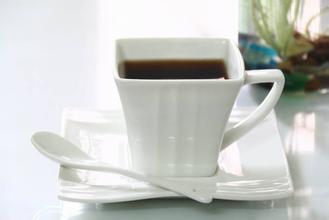Kenya coffee bean flavor description grinding scale varieties taste manor production area introduction
There are two types of coffee farms in Kenya. One is a large plantation that covers an area of more than five acres, but the average elevation is low. In the case of Kenyan coffee, the coffee beans of the large farms are of medium quality. The best Kenyan beans come from small farms, most of which are located in the foothills or volcanic slopes above 5,000 to 6,000 feet. Each small farmer has a capacity of only 20 to 70 bags per season and cannot afford to invest in expensive washing plants, but small farmers are very United. Hundreds or thousands of households are gathered to set up a cooperative farm, which is funded by the government to build a washing treatment plant, and the coffee fruits picked by small farmers are sent to the cooperative farm for unified processing. First remove the half-ripe or rotten fruit, then peel, ferment, decompose the flesh, remove the coffee beans, then dry and polish, the whole process is supervised by the official Coffee Administration, which ensures the quality of Kenyan coffee. Kenya bean washing processing technology and high standards of quality control, has always been an example of bean-producing countries. If you only know how to brew, but not how to taste coffee, the original delicacy may become tasteless. Some people taste coffee with the taste of the tongue, while others enjoy the aromatic mellow in the mouth. in addition, it depends on the condition of the body and the atmosphere around the coffee. In a word, tasting coffee is a very delicate thing.
When you drink coffee in a coffee shop, you sometimes drink almost half-cold coffee. No matter how good the coffee beans are and how good the brewing skills are, you will lose your appetite for coffee. Drinking while it is hot is a necessary condition for tasting delicious coffee, even on a hot summer day. When the coffee is cold, the flavor will decrease, so when brewing the coffee, in order not to reduce the taste of the coffee, soak the coffee cup in boiling water in advance. The appropriate temperature for coffee is 83 degrees Celsius at the moment of brewing, 80 degrees Celsius when pouring into the cup, and 61-62 degrees into the mouth, which is the most ideal.

Important Notice :
前街咖啡 FrontStreet Coffee has moved to new addredd:
FrontStreet Coffee Address: 315,Donghua East Road,GuangZhou
Tel:020 38364473
- Prev

Introduction of Brazilian Coffee Bean Flavor description method Grinding Calibration Variety Manor producing area
Grinding: coffee makes the greatest sacrifice to break into pieces in order to blend with water. Before brewing coffee, the beans must be ground into fine grains to increase the contact area between water and coffee in order to extract the delicacy. In fact, the bean grinder is more important than the coffee machine. At present, most people choose the sawtooth grinder because it can grind uniform coffee powder quickly and steadily. Saw
- Next

Description of Rwanda Coffee Bean Flavor with Grass aroma introduction to Grinding scale Manor production area
Rwanda (Rwanda) coffee with its high-quality washed Arabica coffee beans, eye-catching, in the international market is becoming more and more popular. According to Karuritwa, marketing and promotion officer of the Rwandan Coffee Association, Rwanda plans to export 3000 tons of coffee this year, further increasing coffee production to meet the increasing market demand. The largest coffee drink in the world
Related
- Detailed explanation of Jadeite planting Land in Panamanian Jadeite Manor introduction to the grading system of Jadeite competitive bidding, Red bid, Green bid and Rose Summer
- Story of Coffee planting in Brenka region of Costa Rica Stonehenge Manor anaerobic heavy honey treatment of flavor mouth
- What's on the barrel of Blue Mountain Coffee beans?
- Can American coffee also pull flowers? How to use hot American style to pull out a good-looking pattern?
- Can you make a cold extract with coffee beans? What is the right proportion for cold-extracted coffee formula?
- Indonesian PWN Gold Mandrine Coffee Origin Features Flavor How to Chong? Mandolin coffee is American.
- A brief introduction to the flavor characteristics of Brazilian yellow bourbon coffee beans
- What is the effect of different water quality on the flavor of cold-extracted coffee? What kind of water is best for brewing coffee?
- Why do you think of Rose Summer whenever you mention Panamanian coffee?
- Introduction to the characteristics of authentic blue mountain coffee bean producing areas? What is the CIB Coffee Authority in Jamaica?

